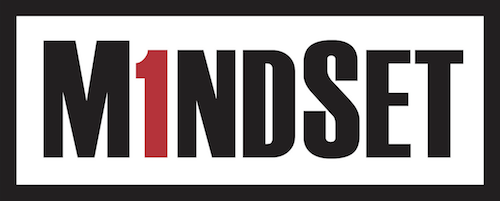MindSet teaches the importance of assessing where your colleagues fall on the Cosmo versus Local continuum. A Cosmo is someone who ties their ego to their title or their profession. A Local, in contrast, ties their ego to the success of the whole.
Great cultures are built on a foundation of Locals: individuals who are excited about, and actively promote, the success of their colleagues. Cosmos can contribute to organizational success, but they need to be managed a bit differently and only as a last resort should they be put in a supervisory role.
But is this Cosmo versus Local orientation to work an inherent personality trait within a given individual? Or is it perhaps more of a situational, attitudinal state that can be modified by effective leadership? (In psychology we call this the state-trait argument.)
Many have long assumed that a Cosmo is strongly predisposed to remain a Cosmo – but I have increasingly seen instances that have persuaded me that this is often not the case. Rather, it appears that the creation and maintenance of a Cosmo frequently results from an interaction between an individual’s personality and the specific environment within which that individual is seated. The awkward psychological term for this phenomena is reciprocal determinism. Let me explain.
When individuals are part of an organization that is dysfunctional – e.g., a culture where success is rare and credit is seldom shared – it becomes both rational and adaptive for them to focus on their own survival, including assertively grabbing for scarce credit and doing all they can to avoid blame for failure. We can see this pattern play out in sports. If someone plays on a ball team that loses 90% of its games, there is little motivation to tie their ego to the success of the whole given that there is precious little success emanating from the whole! In that situation, it’s not surprising that players will become more and more focused on their own stats.
We find examples of this in professional sports where a player may be deemed a problem teammate on a team that is not doing well, but when traded to a high-performing team, that same prima donna becomes a better teammate – often not perfect, mind you, but much better at being invested in the success of the team. We might call these folks “state Cosmos,” meaning their Cosmo attitude changes from one setting to the next. (Of course, the people we want to be in a foxhole with are the “trait Locals” – those who remain Locals even when playing for a losing team.)
So what is it that has the power to temper a Cosmo’s self-centeredness? It is pride. When an employee feels genuine pride in the company for which they work, they will be more inclined to function as a Local when interacting with colleagues and customers.
This insight – that Locals can be created by high-pride environments – serves to once again highlight the importance of leaders taking active steps to build a deep and genuine sense of pride among the employees in their organization. That young Marine may well start with big personal ego – but that personal focus is ultimately overwhelmed and consumed by their even greater sense of pride in being part of something far bigger and more impressive: the US Marines Corps.
I recently heard the author, Simon Sinek, comment on how revealing it is that a Marine will give his life for another person he doesn’t even like, while in corporate America we find many situations where employees won’t even give away credit for a single sale to someone they work right beside every day. There is something in the training Marine recruits receive, and the leadership they experience, that creates the incredible pride that results in the extreme Local orientation that is so critical to the success of the Corps. There is much here for those of us in business to learn.
Bottom line: building pride in our employees can transform a few initial Cosmos into a new batch of valuable Locals, and it explains why companies with exceptional cultural health and sky-high levels of pride seem to be heavily populated with Locals. Yes, they likely hired a good number of Locals, but they also likely created a good number as well…an accomplishment that leads to greater business success.

Founder of MindSet, LLC.

